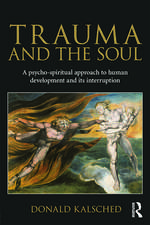Behaviorism
Autor John B. Watsonen Limba Engleză Paperback – 30 ian 1997
Watson identified "laws" of learning, including frequency and recency. Kimble makes it perfectly clear that Watson's behaviorism, while deeply indebted to Ivan Pavlov, went beyond the Russian master in his treatment of cognition, language, and emotion. It becomes clear that Behaviorism is anything but the reductionist caricature it is often made out to be in the critical literature. For that reason alone, the work merits a wide reading.
Behaviorism, as was typical of the psychology of the time, offered a wide array of applications—all of which can be said to fall on the enlightened side of the ledger. At a time of mixed messages, Watson argued against child beating and abuse, for patterns of enlightened techniques of factory management, and for curing the sick and isolating the small cadre of criminals not subject to correction. And anticipating Thomas Szasz, he argued against a doctrine of strictly mental diseases, and for a close scrutiny of behavioral illness and disturbances. Kimble's brilliant introduction to Watson ends with a challenge to subjectivism to provide evidence that Watson's behaviorism cannot explain human actions without introspective notions of the mind. This genuine classic of social science hi our century remains relevant not just for the conduct of psychological research, but for studies in the philosophy of science and the sociology of knowledge.
| Toate formatele și edițiile | Preț | Express |
|---|---|---|
| Paperback (2) | 220.97 lei 6-8 săpt. | |
| West Press – 6 oct 2008 | 220.97 lei 6-8 săpt. | |
| Taylor & Francis – 30 ian 1997 | 438.56 lei 6-8 săpt. | |
| Hardback (1) | 1054.71 lei 6-8 săpt. | |
| Taylor & Francis – 20 sep 2017 | 1054.71 lei 6-8 săpt. |
Preț: 438.56 lei
Nou
Puncte Express: 658
Preț estimativ în valută:
83.92€ • 87.84$ • 69.85£
83.92€ • 87.84$ • 69.85£
Carte tipărită la comandă
Livrare economică 29 martie-12 aprilie
Preluare comenzi: 021 569.72.76
Specificații
ISBN-13: 9781560009948
ISBN-10: 1560009942
Pagini: 276
Dimensiuni: 152 x 229 x 18 mm
Greutate: 0.51 kg
Ediția:Revised
Editura: Taylor & Francis
Colecția Routledge
Locul publicării:Oxford, United Kingdom
ISBN-10: 1560009942
Pagini: 276
Dimensiuni: 152 x 229 x 18 mm
Greutate: 0.51 kg
Ediția:Revised
Editura: Taylor & Francis
Colecția Routledge
Locul publicării:Oxford, United Kingdom
Cuprins
INTRODUCTION I. WHAT IS BEHAVIORISM? II. HOW TO STUDY HUMAN BEHAVIOR Ill. THE HUMAN BODY Part 1-The structures that make behavior possible. IV. THE HUMANB ODY Part 11-The glands in everyday behavior. V. ARE THERE ANY HUMAN INSTINCTS? Part I-On the subject of talent, tendencies and the inheritance of all so-called 'mental' traits. VI. ARE THERE ANY HUMAN INSTINCTS? Part 11-What the study of the human young teaches us. VII. EMOTIONS Part I-A general survey of the field and some experimental studies. VIII. EMOTIONS Part 11-Further experiments and observations on how we acquire, shift and lose our emotional life. IX. OUR MANUAL HABITS X. TALKING AND THINKING XI. DO WE ALWAYS THINK IN WORDS XII. PERSONALITY
Descriere
Watson was the father of behaviorism. His now-revered lectures on the subject defined behaviorism as a natural science that takes the whole field of human adjustment as its own. It is the business of behaviorist psychology to predict and control human activity















